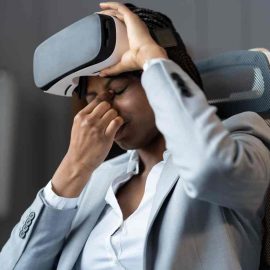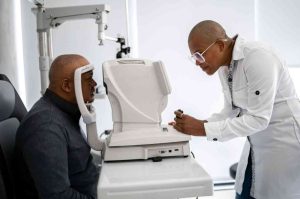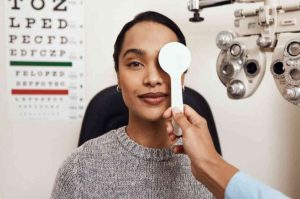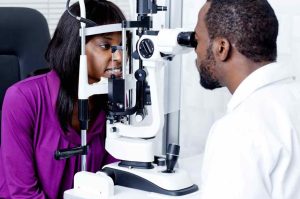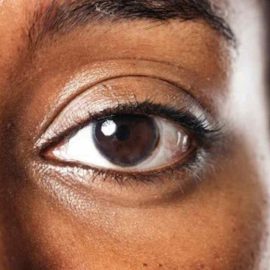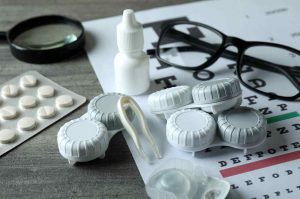How to Protect Your Eyes While Using Digital Devices in Nigeria
In the heart of Nigeria, where the pulsating rhythm of tradition meets the dynamic beats of the digital age, our eyes become the silent narrators of a captivating tale. As we immerse ourselves in the digital landscape, from the glow of smartphones to the luminosity of laptops, a profound connection emerges – a connection that intertwines the essence of our cultural roots with the ever-evolving dance of technology. In this guide, we embark on a journey of preservation, a journey that transcends the practicality of eye protection to become a narrative of emotional resonance. Here, the vibrant spirit of Nigeria converges with the luminous screens that weave our daily stories, and the well-being of our vision emerges not just as a physical necessity but as a testament to the delicate balance we seek in embracing both tradition and the brilliance of the digital future. Join us as we navigate the intricate tapestry of eye care in Nigeria, where the warmth of our heritage harmonizes with the glow of our digital devices, and the protection of our eyes becomes a symbolic ode to the richness of our cultural identity.

Understanding the Risks of Digital Device Usage
Excessive digital device usage can lead to eye strain and discomfort. The constant staring at screens can cause the eye muscles to become fatigued, leading to symptoms such as headaches, dry eyes, and blurred vision.
Prolonged exposure to digital screens can also contribute to dry eyes, as blinking reduces significantly when using digital devices. This can result in eye irritation, redness, and a feeling of grittiness in the eyes.
Tips for Reducing Eye Strain and Discomfort
When using digital devices in Nigeria, it’s essential to take steps to protect your eyes and avoid discomfort. Here are some helpful tips:
- Adjust screen brightness: Lower the brightness of your screen to reduce eye strain. A bright screen can put unnecessary strain on your eyes, so find a comfortable level.
- Take regular breaks: Remember to take frequent breaks to rest your eyes. Staring at a screen for extended periods can cause discomfort, so try following the 20-20-20 rule – every 20 minutes, look away from the screen at something 20 feet away for at least 20 seconds.
- Use the 20-20-20 rule: Every 20 minutes, look away from the screen at something 20 feet away for at least 20 seconds.
- Follow proper ergonomics: Maintain a comfortable posture and position your device at eye level to avoid strain on your neck and eyes.
- Blink frequently: Remember to blink regularly while using digital devices. Blinking helps prevent dry eyes, keeping them moist and comfortable.

The Impact of Blue Light on Eye Health
Blue light emitted from digital devices can have a detrimental effect on your eye health. The high energy blue light can penetrate the retina and cause damage over time. It can lead to digital eye strain, which includes symptoms like dry eyes, blurred vision, and headaches.
To protect your eyes from blue light, you can take several precautions:
- Use blue light filters or install apps that filter out blue light on your devices. This can help reduce the amount of blue light reaching your eyes.
- Consider wearing special glasses with blue light protection when using digital devices for extended periods. These glasses can block the harmful blue light and provide relief for your eyes.
By taking these measures, you can reduce the potential damage caused by blue light and protect your vision in Nigeria.

Choosing the Right Digital Device Settings
When using digital devices, it is important to adjust the settings to ensure optimal eye health. Here are some tips:
Adjust Font Size and Contrast
Reading small text on digital screens can strain the eyes. Increase the font size to make it easier to read. Additionally, adjust the contrast settings to ensure that the text is clear and easy to distinguish from the background.
Reduce Screen Glare
Glare from the screen can contribute to eye strain. Position the screen in a way that reduces reflections and glare from windows or other light sources. Consider using an anti-glare screen filter for added protection.
By choosing the right digital device settings, you can minimize eye strain and discomfort while using digital devices in Nigeria.

Importance of Regular Eye Breaks
Taking breaks from digital device usage allows the eyes to rest and recover. Continuous staring at screens can cause eye strain and fatigue. By taking short breaks every 20 minutes, you can give your eyes a chance to relax.
Frequent blinking during breaks can also help prevent dry eyes. When we stare at screens, we tend to blink less, which can lead to dryness and discomfort in the eyes. Remember to consciously blink and moisturize your eyes during breaks.
Proper Lighting for Optimal Eye Health
One important factor in protecting your eyes while using digital devices is proper lighting. Bright overhead lights can cause glare on the screen and contribute to eye strain. Instead, opt for ambient lighting that provides a more gentle and even illumination.
In addition to the right type of lighting, it’s also crucial to consider the positioning of your screen. Avoid placing your device in direct sunlight or front of bright windows, as the glare can strain your eyes. Position the screen in a way that minimizes the reflection of light sources.

Eye Exercises to Alleviate Strain
Eye strain and discomfort can be relieved through the following eye exercises:
- Blinking exercises: Regularly blink your eyes for a few seconds to help moisturize them and prevent dryness.
- Eye rolling exercises: Gently roll your eyes in a circular motion, first clockwise and then counterclockwise. This can relieve tension and reduce eye strain.
By incorporating these simple exercises into your routine, you can alleviate strain and improve your eye health while using digital devices.
Seeking Professional Eye Care in Nigeria
It is important to prioritize your eye health by scheduling regular eye check-ups with an optometrist. They can detect any early signs of eye strain or discomfort and provide appropriate treatment. Additionally, they can recommend specialized eye care options for digital device usage.
If you frequently use digital devices, it may be beneficial to get a prescription for computer glasses. These glasses are specifically designed to provide customized eye protection while using screens. They can help reduce eye strain, minimize glare, and protect against blue light emitted from digital devices.

Conclusion
Protecting your eyes while using digital devices in Nigeria is crucial for maintaining optimal eye health. Excessive digital device usage can lead to eye strain, discomfort, dry eyes, and blurred vision. However, there are several simple steps you can take to protect your eyes.
Adjusting the screen brightness, taking regular breaks to rest your eyes, and using blue light filters or special glasses can all help reduce eye strain and protect your eyes from the harmful effects of blue light. Choosing the right digital device settings, such as adjusting font size and contrast, and reducing screen glare can also make a significant difference.
Taking regular eye breaks not only allows your eyes to rest and recover but also prevents dry eyes. Proper lighting, such as using ambient lighting instead of bright overhead lights and positioning your screen to avoid glare, is also essential for optimal eye health.
Incorporating eye exercises into your daily routine, such as blinking exercises to moisturize the eyes and prevent dryness and eye-rolling exercises to relieve tension and reduce eye strain, can provide additional relief.
However, while these tips and practices can help alleviate strain and protect your eyes to some extent, it’s important to seek professional eye care in Nigeria. Regular eye check-ups with an optometrist can detect and address any eye issues early on, and getting a prescription for computer glasses can provide customized eye protection.
By following these steps and seeking professional eye care, you can take proactive measures to protect your eyes while using digital devices in Nigeria and maintain good eye health in the long run.

